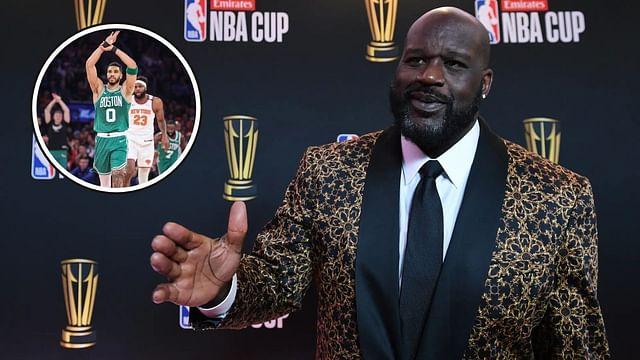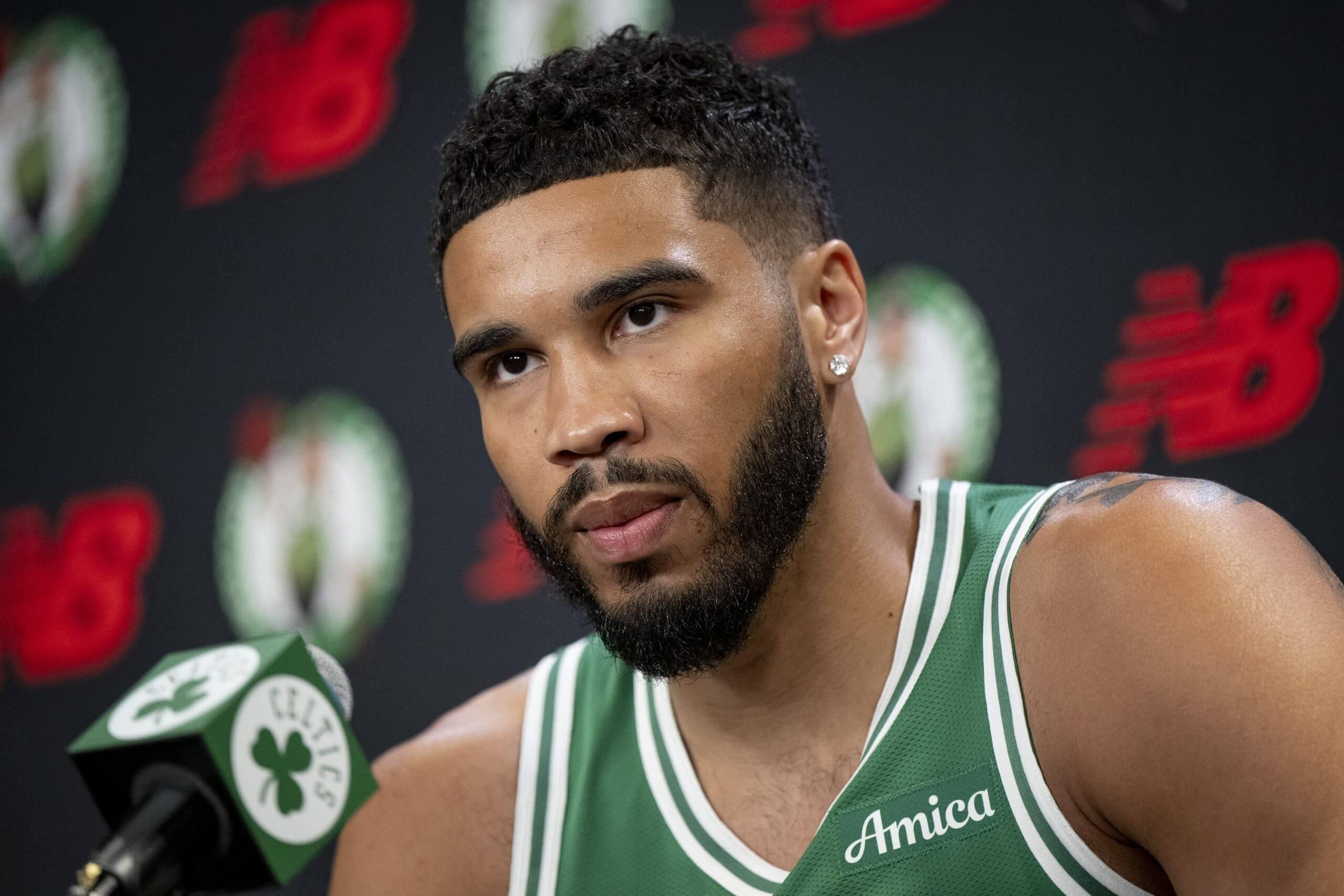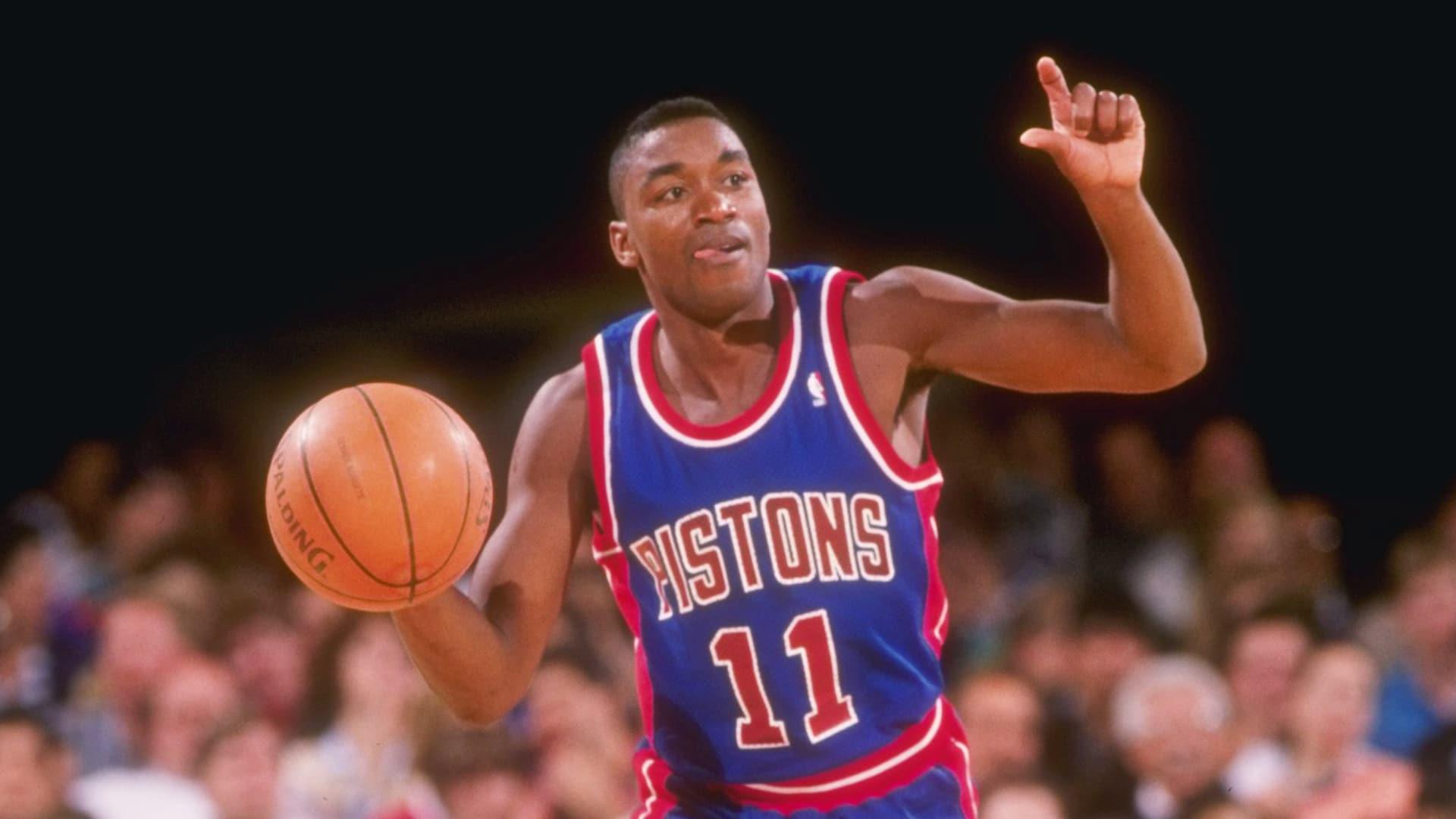In a recent episode of his podcast, NBA legend Shaquille O’Neal sparked a heated discussion by questioning the Hall of Fame credentials of Boston Celtics star Jayson Tatum. O’Neal, known for his candid and often colorful commentary, didn’t hold back, stating, “Motherf**kers just throwing people in there now,” when asked about Tatum’s potential Hall of Fame trajectory. Citing the standards set by former Detroit Pistons great Isiah Thomas, O’Neal suggested that the criteria for induction into the Basketball Hall of Fame have become diluted, and Tatum’s resume, while impressive, may not yet meet the elite threshold he associates with true Hall of Fame greatness.

O’Neal’s comments came during a lively exchange with co-host Brandon Jennings, where the topic of current NBA players destined for the Hall of Fame was broached. When Tatum’s name was raised, O’Neal referenced Isiah Thomas’ perspective on the Hall of Fame, which divides it into two tiers: the “Basketball Hall of Fame” and the “bad motherf**ker Hall of Fame.” According to O’Neal, the latter is reserved for players who have not only achieved statistical excellence but have also left an indelible mark on the game through dominance, leadership, and legacy. In his view, players like Stephen Curry, Giannis Antetokounmpo, and Nikola Jokic are closer to this elite category, while Tatum, despite his accomplishments, hasn’t yet reached that echelon.
Jayson Tatum, at 27, has already built a strong case for future Hall of Fame consideration. A five-time All-Star, Tatum has been a cornerstone of the Celtics’ success, including their 2024 NBA Championship win. He’s averaged over 20 points per game in each of the last six seasons, with a career-high 30.1 points per game in 2022-23, and has earned All-NBA First Team honors multiple times. His playoff performances, including deep runs to the Eastern Conference Finals and the NBA Finals, showcase his ability to perform on the biggest stages. Yet, O’Neal’s critique seems to hinge on the idea that Tatum’s accolades, while significant, lack the singular dominance or defining moments that characterize the game’s all-time greats.

O’Neal’s perspective isn’t without merit. The Basketball Hall of Fame, unlike other sports’ halls, is known for its relatively inclusive approach, inducting not just players but coaches, executives, and contributors from various levels of the game, including college and international basketball. This broader scope has led some to argue that the bar for NBA players has been lowered in recent years, allowing players with strong but not transcendent careers to gain entry. O’Neal, a four-time NBA champion and one of the most dominant centers in history, appears to align with Isiah Thomas’ view that only the most exceptional should be immortalized in Springfield.
Despite his skepticism, O’Neal did offer a nod to Tatum’s potential, noting that he could eventually rank among the Celtics’ all-time greats. Tatum’s youth and trajectory suggest he has ample time to bolster his resume, whether through additional championships, MVP awards, or other defining achievements. The Celtics’ recent success, coupled with Tatum’s role as their primary star, positions him well to address the critiques of skeptics like O’Neal. However, the question remains: what does it take to earn a spot in the “bad motherf**ker Hall of Fame” that O’Neal so vividly described?
The debate also highlights a generational divide in how greatness is measured. For O’Neal, who played in an era dominated by physicality and larger-than-life personalities like Michael Jordan, Kobe Bryant, and himself, the Hall of Fame is a sacred space reserved for those who redefined the game. Tatum, a versatile forward with a modern, positionless style, represents a new era of basketball where efficiency, versatility, and team success are prized. Reconciling these perspectives is no easy task, as the game continues to evolve, and so do the standards for immortality.

Ultimately, O’Neal’s comments serve as both a challenge and a reminder. For Tatum, they’re a call to continue elevating his game, to move beyond being a star and toward becoming a legend. For fans and analysts, they prompt a deeper discussion about what constitutes a Hall of Fame career in today’s NBA. As Tatum continues to carve out his legacy, one thing is clear: the path to the Hall of Fame, in O’Neal’s eyes, demands more than just numbers—it requires greatness that transcends the stat sheet.




